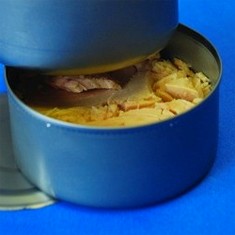 0 professionals of the tuna industry attended the VI Worldwide Tuna Conference in Vigo, Spain this month, calling for equitable treatment for imports from developing countries.
0 professionals of the tuna industry attended the VI Worldwide Tuna Conference in Vigo, Spain this month, calling for equitable treatment for imports from developing countries.Attendees spent two days discussing the current and future perspectives of the raw material supply, innovation, trends and Illegal, Unreported and Unregulated (IUU) fishing, among other topics. At the end of the conference, attendees produced the conference’s “Worldwide Tuna Industry Statement Vigo 2013.”
The document, among other declarations, demands the E.U. hold imported seafood from developing countries to the strictest standards in the field of food safety and hygiene and sanitary aspects, among others. The document accused the E.U. of “granting advantages for a preferential entry to the European tuna canned market, of products from countries such as Thailand, Vietnam, among others, that are currently negotiating bilateral agreements with the E.U.”
With this statement the processing tuna sector aims to “avoid the consequences that such situation could generate, with negative effects on both jobs and economic activity in the E.U. and in countries with E.U. investments.”
The General Secretary of Fishing from the Spanish Ministry of Agriculture, Food and Environment, Carlos Domínguez, also talked about this topic at the conference. He warned about the unfair competition of some ports within the E.U., caused by poorly-enforced regulations. He also called for more involvement from the E.U. “It’s necessary to have a greater E.U. involvement so that all Member States carry out the same level of control,” Domínguez said.
As Domínguez explained, Spain is currently the second largest producer of tuna products in the world, representing 14 percent of worldwide production. Thailand is the world’s largest producer, while the United States ranks as third.
In terms of exports, Spain is also the second in the world and is a world leader in the production of tuna products within the E.U., accounting for 67 percent of total production.





